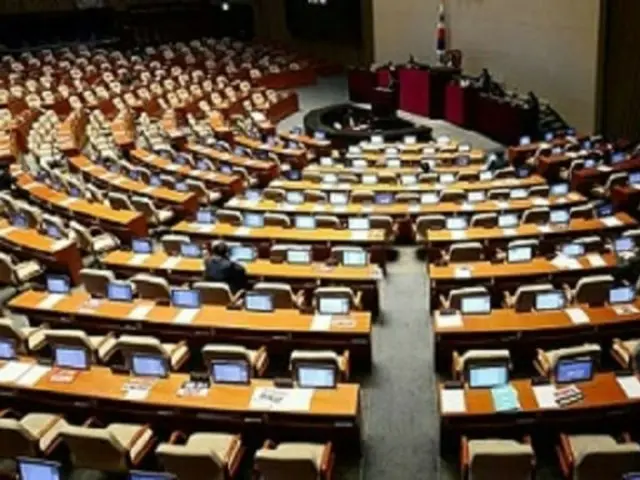The election resulted in a landslide victory for the largest opposition party, the Democratic Party of Korea. South Korea's public broadcaster KBS said, "The deadlock will continue, and the fierce conflict between the ruling and opposition parties will make it difficult to smoothly develop legislation.
The general election of South Korea, which elects members of the unicameral National Assembly (300 seats) every four years, was held on April 10.
The election was positioned as a mid-term evaluation of the Yoon Seok-yeol administration, and contested through single-seat constituencies (254 seats) and proportional representation (46 seats). Before the election, the opposition Democratic Party of Korea had 156 seats (including affiliated parties), and the ruling
The People's Power Party won 114 seats (as of the same time), and the opposition parties held a majority of seats in the Diet, creating a "twisted" situation. The focus of this general election was whether this situation could be resolved.
The Democratic Party, including its affiliated proportional representation parties, won 175 seats, while the ruling People Power Party and its affiliated parties, which support the Yoon administration, were defeated in a major defeat, winning only 108 seats.
Although they did not reach the 200 seats required to pass a motion calling for the impeachment of President Lee Hyun-soo, they will be able to continue to hold the reins of power in the political arena.
Regarding the landslide victory, Chairman Myung said, "I would like to express my sincere gratitude for the support and encouragement for the party," and added, "It is not a victory for the party, but a great victory for our people."
South Korean media reported that "with three years remaining in his term, President Yoon will likely have no choice but to re-establish the way he will run the country" (Yonhap News Agency).
The 21st National Assembly, under the seats before the general election, closed on the 29th of last month. According to the South Korean newspaper Chosun Ilbo,
In the first National Assembly, 25,855 bills were proposed, but only 9,467 of them were passed. The bill passing rate was 36.6%, lower than the 20th National Assembly's 37.8%.
The President's exercise of his veto (right to request reconsideration) of bills was also conspicuous. If the President of South Korea has an objection to a bill passed by the National Assembly, he has the power to request a reconsideration within a certain period of time, i.e., the veto.
Article 53 of the Constitution provides that a bill that has been vetoed must be passed again by a majority of the members present and by a vote of more than two-thirds of the members present.
President Yoon has repeatedly used his veto power since taking office, and it has been pointed out that such actions are one of the reasons for his declining approval rating.
There are suspicions that pressure was put on the investigation into the accident in which a Marine died during the line of duty. The Democratic Party of Korea is proposing a bill to have a special prosecutor independent of the government investigate the allegations (Special Prosecutor Appointment Act,
The party submitted the bill to the National Assembly. The bill was passed by the party on the 2nd of last month, but President Yoon vetoed it as well. The Presidential Office said that the police and the High Commissioner for Criminal Investigation have already investigated the handling of the accident.
The reason for the rejection was that it "does not fit the purpose of the special prosecutor system, which should only be applied when an investigation is insufficient." However, if this law is enacted, President Yoon and even the core of the presidential office will become targets of investigation.
The bill, which had been sent back to the National Assembly due to President Yoon's veto, was put to a second vote at the National Assembly plenary session on the 28th of last month.
However, out of the total 294 votes, only 179 votes were in favor, which was less than two-thirds of the total, and the bill was rejected. This means that of the 10 bills that President Yoon vetoed, the bills that were sent back to the National Assembly and scrapped have been scrapped.
The 22nd Diet term began on the 30th of last month. As mentioned above, following the results of the general election in April, the ruling party "People's Power" won 108 seats, while the opposition parties won 192 seats.
The ruling minority party, the People's Power Party, is bound to continue to struggle with legislation. It is prepared to use the presidential veto to deal with bills pushed forward by the opposition party, but the South Korean newspaper Han
Kyoreh said that since the People Power Party's seats have fallen from 114 in the previous National Assembly to 108 in the current one, "all it takes is for eight members of the ruling party to change their minds, making President Yoon's veto power ineffective.
"If two-thirds of the 100, or 200, of the House members united, they could pass a bill that the president had vetoed," he said.
2024/06/03 15:19 KST
Copyrights(C)wowkorea.jp 5

